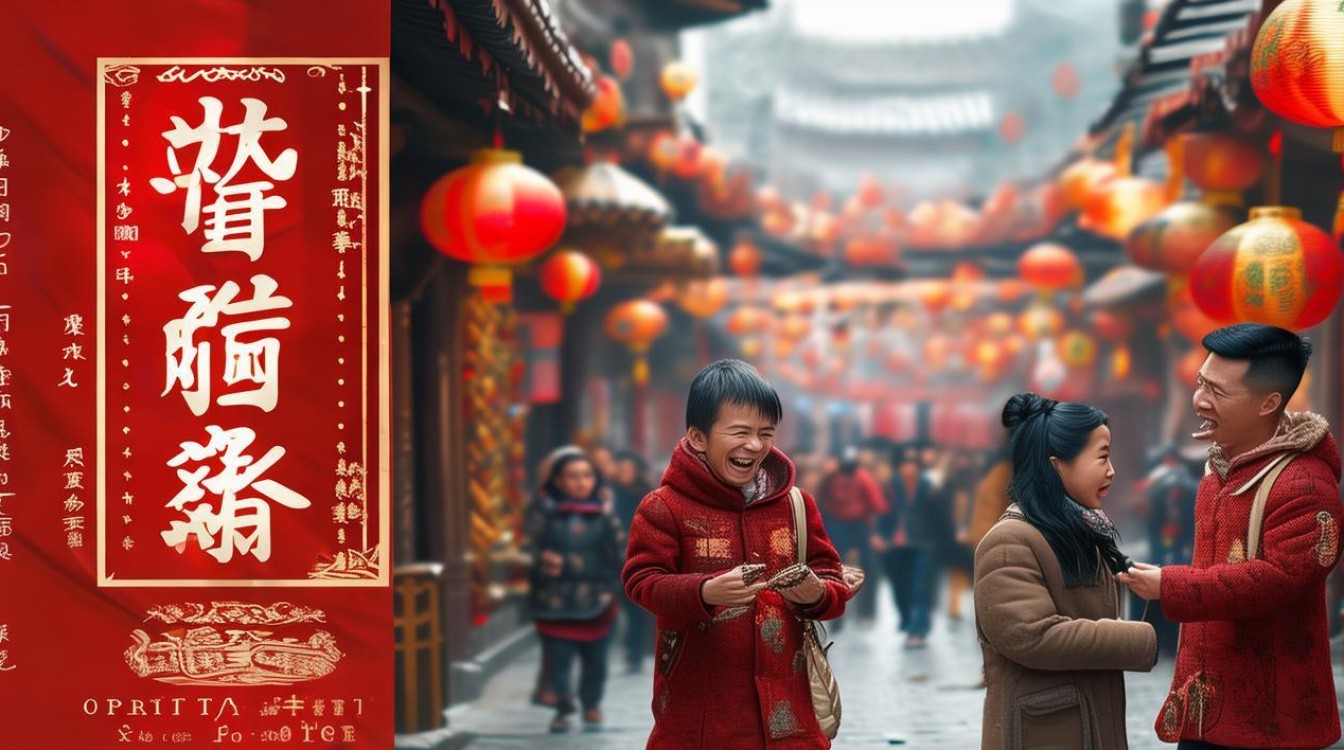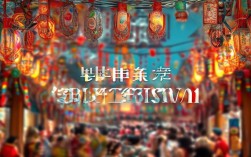Spring Festival (Chinese New Year) Oral English Topic Bank
春节口语话题题库

Part 1: Introduction & Basics (入门与基础)
适合初学者,用于开启话题,介绍基本概念。
Topic 1: What is Spring Festival? (什么是春节?)
-
Key Vocabulary (核心词汇):
- Lunar Calendar (农历)
- Spring Festival / Chinese New Year (春节 / 中国新年)
- Traditional Chinese holiday (中国传统节日)
- Most important festival (最重要的节日)
- Family reunion (家庭团聚)
- Celebrate (庆祝)
- Last for 15 days (持续15天)
- Lantern Festival (元宵节)
-
Useful Sentences (实用句型):
- "Could you tell me about the Spring Festival?" (你能给我讲讲春节吗?)
- "Spring Festival is the most important traditional holiday in China." (春节是中国最重要的传统节日。)
- "It's based on the lunar calendar, so the date changes every year." (它基于农历,所以日期每年都不同。)
- "For most Chinese people, it's all about family reunion." (对大多数中国人来说,春节的核心就是家庭团聚。)
- "The celebration usually lasts from the New Year's Eve to the Lantern Festival." (庆祝活动通常从除夕持续到元宵节。)
Topic 2: The Story of Nian (年兽的故事)
-
Key Vocabulary (核心词汇):
- Legend (传说)
- Monster named "Nian" (名叫“年”的怪兽)
- Scared (害怕)
- Loud noises (巨大的噪音)
- Color red (红色)
- Firecrackers (鞭炮)
- Drive away (赶走)
- Origin (起源)
-
Useful Sentences (实用句型):
- "There's a famous legend behind the festival called 'The Story of Nian'." (节日背后有一个著名的传说,叫做“年兽的故事”。)
- "Long ago, a monster called 'Nian' would appear on New Year's Eve to scare people and eat their crops." (很久以前,一个叫“年”的怪兽会在除夕夜出现,吓唬人并吃掉他们的庄稼。)
- "People found out that Nian was afraid of the color red and loud noises." (人们发现年兽害怕红色和巨大的噪音。)
- "That's why we set off firecrackers and decorate our homes in red during Spring Festival." 这就是我们为什么在春节放鞭炮和用红色装饰家居的原因。)
Part 2: Preparations & Activities (准备与活动)
介绍节前的准备和节日期间的各种活动,内容更丰富。
Topic 3: Preparations for the New Year (节前准备)
-
Key Vocabulary (核心词汇):
- Spring cleaning (大扫除)
- Get a new haircut (剪个新发型)
- Buy new clothes (买新衣服)
- Decorate (装饰)
- Couplets (春联)
- Paper cuttings (剪纸)
- "Fu" character (福字)
- Shopping rush (购物高峰)
- Reunion dinner (年夜饭)
-
Useful Sentences (实用句型):
- "We do a big 'Spring cleaning' before the New Year to sweep away bad luck." (我们在新年之前会进行一次“大扫除”,以扫除坏运气。)
- "It's a tradition to get a haircut and buy new clothes to start the year fresh." (剪个新发型、买新衣服是迎接新年的传统,寓意万象更新。)
- "We decorate our doors with red couplets that have good wishes written on them." (我们在门上贴着写有美好祝愿的红色春联。)
- "My mom and I usually go shopping for weeks before the festival to get everything ready for the reunion dinner." (我和妈妈通常在节前好几周就去采购,为年夜饭做准备。)
Topic 4: Reunion Dinner (年夜饭)
-
Key Vocabulary (核心词汇):
- Reunion dinner (年夜饭)
- Get together (团聚)
- Extended family (大家庭)
- Traditional dishes (传统菜肴)
- Dumplings (饺子)
- Fish (鱼 - yú)
- Glutinous rice cake (年糕 - niángāo)
- Sweet rice balls (汤圆 - tāngyuán)
- Toast (敬酒)
- Lucky money (压岁钱 - yāsuìqián)
-
Useful Sentences (实用句型):
- "The reunion dinner on New Year's Eve is the most important meal of the year." (除夕夜的年夜饭是一年中最重要的一顿饭。)
- "My whole family, including grandparents, aunts, and uncles, will get together for a big feast." (我的整个大家庭,包括祖父母、阿姨和叔叔们,都会聚在一起吃大餐。)
- "We eat fish because 'fish' (鱼, yú) sounds like 'surplus' (余, yú), symbolizing prosperity." (我们吃鱼,因为“鱼”和“余”谐音,象征着富余和繁荣。)
- "It's also very common to eat dumplings, which look like ancient gold ingots." (吃饺子也很普遍,因为它们的形状像古代的金元宝。)
- "After dinner, the older generation gives lucky money in red envelopes to the children." (晚饭后,长辈会给孩子们发装着压岁钱的红包。)
Topic 5: New Year's Activities & Traditions (新年活动与传统)
-
Key Vocabulary (核心词汇):
- Red envelopes (红包 - hóngbāo)
- Firecrackers (鞭炮 - biānzhào)
- Setting off fireworks (放烟花)
- New Year visits (拜年 - bàinián)
- Pay New Year calls (拜年)
- Temple fairs (庙会 - miàohuì)
- Watch the Spring Festival Gala (看春晚)
- Lion dance (舞狮 - wǔshī)
- Dragon dance (舞龙 - wǔlóng)
-
Useful Sentences (实用句型):
- "On New Year's Day, we visit relatives and friends to 'pay New Year calls'." (大年初一,我们会走亲访友“拜年”。)
- "Children are always excited to receive red envelopes with lucky money from their elders." (孩子们总是很兴奋地从长辈那里收到装着压岁钱的红包。)
- "Many people set off firecrackers and fireworks to celebrate, though it's now banned in big cities for safety reasons." (很多人会放鞭炮和烟花来庆祝,但出于安全考虑,现在大城市已经禁放了。)
- "Watching the Spring Festival Gala on TV has become a new tradition for almost every family." (看春节联欢晚会已经成为每个家庭的新传统。)
- "You can also see exciting lion and dragon dances in the streets or at temple fairs." (你还可以在街头或庙会上看到精彩的舞狮和舞龙表演。)
Part 3: Deeper & Personal Insights (深入与个人见解)
适合中高级学习者,可以展开更深入的讨论,分享个人观点和经历。
Topic 6: Food Symbolism (食物的象征意义)
-
Discussion Points (讨论点):
- What are the must-have dishes for your family's reunion dinner?
- What do these foods symbolize? (e.g., dumplings for wealth, fish for surplus, rice cakes for higher income/year after year)
- Are there any special foods in your hometown during Spring Festival?
- How has the menu for reunion dinner changed over the years?
-
Useful Sentences (实用句型):
- "Every dish has a special meaning. For example, we eat sweet rice cakes, or 'niangao', because it sounds like 'higher year by year' (年年高, niánnián gāo), hoping for a better future." (每道菜都有特殊的寓意,比如我们吃年糕,因为它听起来像“年年高”,希望未来一年更比一年好。)
- "My family's signature dish is... because..." (我家的招牌菜是……因为……)
- "In my hometown, people love to eat... which is a local specialty." (在我的家乡,人们喜欢吃……那是一种地方特产。)
- "Nowadays, people are more creative. Some families might have a hot pot or even a Western-style dinner instead











